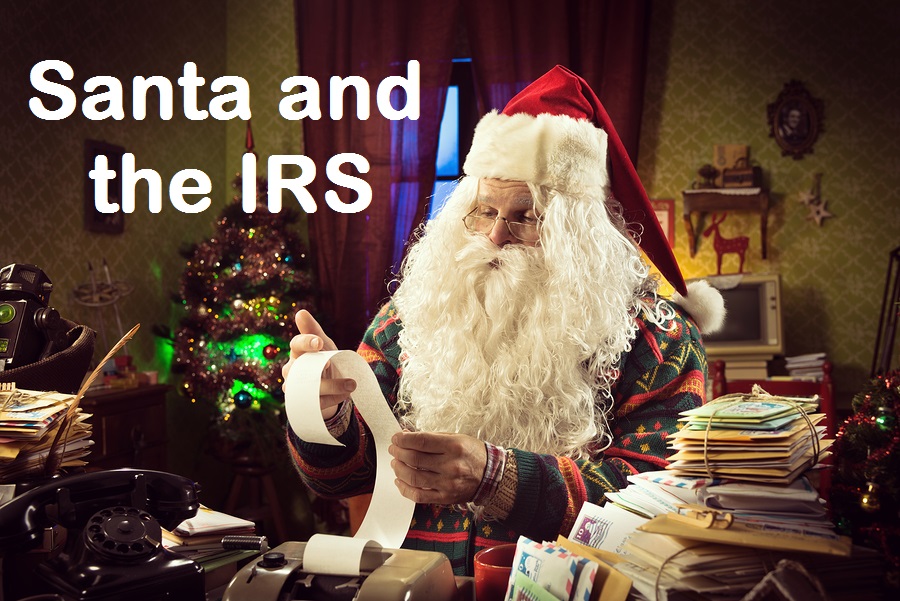
Who knew Santa kept receipts?
Roberg Tax Solutions will be closed from December 24th – January 3rd. Generally, confidentiality rules prevent me from sharing client information, but our very special client has authorized the release of his personal information so that our clients may understand why we will be closed that week. We were recently contacted by Mr. S. Claus concerning this letter that he recently received from the IRS. What follows is our correspondence on behalf of our client with the IRS.
IRS: Mr. Claus, It has come to our attention that you have never filed a US Income Tax return, despite that fact that you have been receiving US business income. We have gone back as far as 1913 and estimated your income and taxes and have determined that you owe the IRS $16,345,619,841.61 including penalties and interest.
Roberg Tax: Dear IRS, Don’t you think it’s a little absurd for you to be charging tax back to 1913? What about the 10 year statute of limitations on collections?
IRS: The 10 year statute does not apply if a tax return was never filed. Therefore, we demand full payment for all years in question.
Roberg Tax: But Santa doesn’t receive US income, he delivers gifts for free.
IRS: Mr. Claus has been receiving his income in the form of barter. He has been receiving cookies, milk, and reindeer carrots for years as payment for his deliveries. We understand, Ms. Roberg, that your parents used to leave Santa beer but we have been gracious enough not to impose federal alcohol excise taxes on Mr. Claus at this time.
Roberg Tax: Well thank you for your generosity on that point, how could you possibly know my Dad used to leave Santa beer?
IRS: We have our ways. We know lots of things.
Roberg Tax: I don’t think I want to know! Anyway, you’re arguing that Santa runs a business in the US and gets paid with milk and cookies. Therefore, since his operation is a business, then he gets to deduct his business expenses which certainly exceed any revenue he could possibly receive from the milk and cookies he receives, therefore he owes no tax.
IRS: Not so fast! Only a legal business may write off expenses. Santa does not live in the United States and he flies into the country illegally—thereby voiding any expense deduction that he would otherwise have been allowed to claim.
Roberg Tax: So you’re calling Santa’s delivering of toys a criminal activity? But if he has proper permission to enter the country, then his business is legal and he may deduct his business expenses which would make his tax bill zero. Is that correct?
IRS: Well, it will work on the business income, but we’ll probably be asking for his federal fuel excise tax on the reindeer.
Roberg Tax: I don’t believe that reindeer feed falls under fuel tax guidelines.
IRS: We’re reaching. We’ve got to close the tax gap and the fat guy could be our ticket out of trouble.
Roberg Tax: Don’t call my client fat, he prefers the term, “Jolly.” And you can’t use Santa to solve the federal deficit. That’s Congress’ job.
Anyway, we’ll be closed for the week. I’m going to be spending my time with a very nasty IRS agent, who really should be dropping this case if he doesn’t want to stay on Santa’s naughty list. We’ll all be back in time for tax season. Don’t you worry about Santa, we’ve got him covered.
Merry Christmas.


